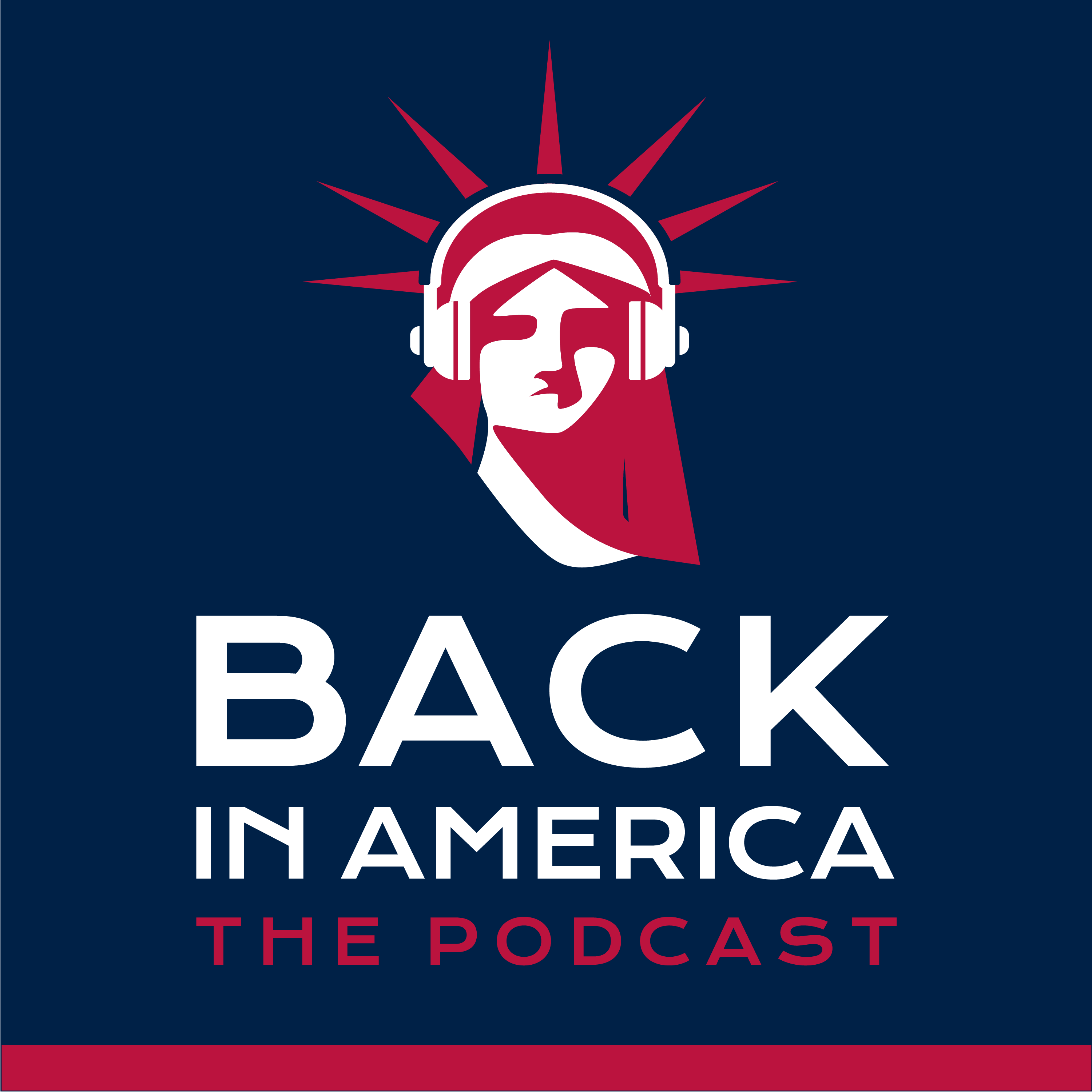Episodes
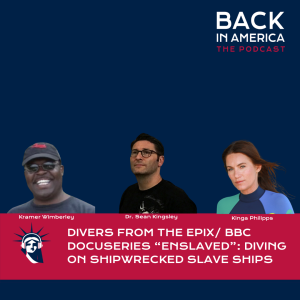
Wednesday Oct 20, 2021
Wednesday Oct 20, 2021
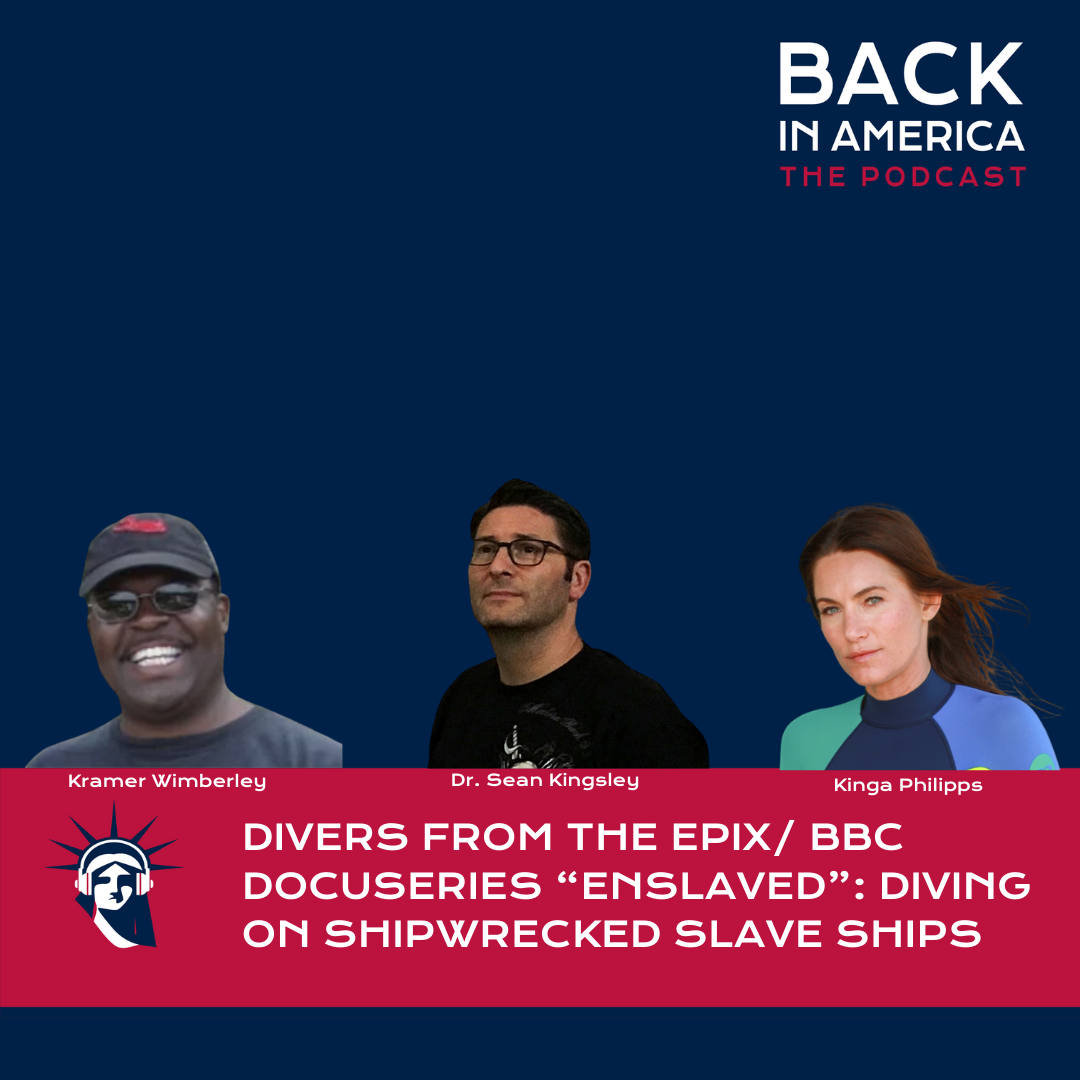
This episode was originally published on December 17, 2020
In this episode, I interview three crew members of the EPIX / BBC docuseries Enslaved: The Lost History of the Transatlantic Slave Trade.
While 2020 has been a year of intense examination of racism in response to the Black Lives Matter movement, Enslaved takes a deep dive at the historical realities of the Middle Passage. Starring Samuel L. Jackson, The Guardian’s Afua Hirsh, and investigative journalist Simcha Jacobovici, the series travels across the globe to sites of slave ships to uncover what these sunken graveyards can reveal about life onboard––lives of which there is little historical record or archive.
Our first guest is the British marine archaeologist Dr. Sean Kingsley who served as a historical advisor to the series’ diving crew.
Then two of the divers will join me: Kinga Philipps and Kramer Wimberley. An award-winning journalist, writer, TV host, and esteemed member of the Explorer’s Club, Kinga provided a European perspective to the shoot, and also was one of the few non-Black divers for Enslaved. Next, Kramer will introduce himself as the series’ lead diving instructor who also leads “Diving with a Purpose,” a maritime archaeology program that protects the legacy of the Transatlantic slave trade shipwrecks.
Each of the three interviews was broadcasted live and can be watched in full on the Back in America’s YouTube channel.
As I conducted these interviews, I wanted to understand two things. First, what did diving on the wrecks of slave ships us about the history of the slave trade. Then, I wanted the divers to speak about their own experiences as they dived and explored these sunken mass graves, especially in light of recent activism in America.
Dr Sean Kingsley Wreckwatch Mag
Kramer Wimberly Diving With a Purpose
This episode was partially edited by Back in America’s Podcast Editor Josh Wagner.
Read the Transcript

Saturday Sep 18, 2021
SETI – Dr. Seth Shostak – Searching for E.T.
Saturday Sep 18, 2021
Saturday Sep 18, 2021
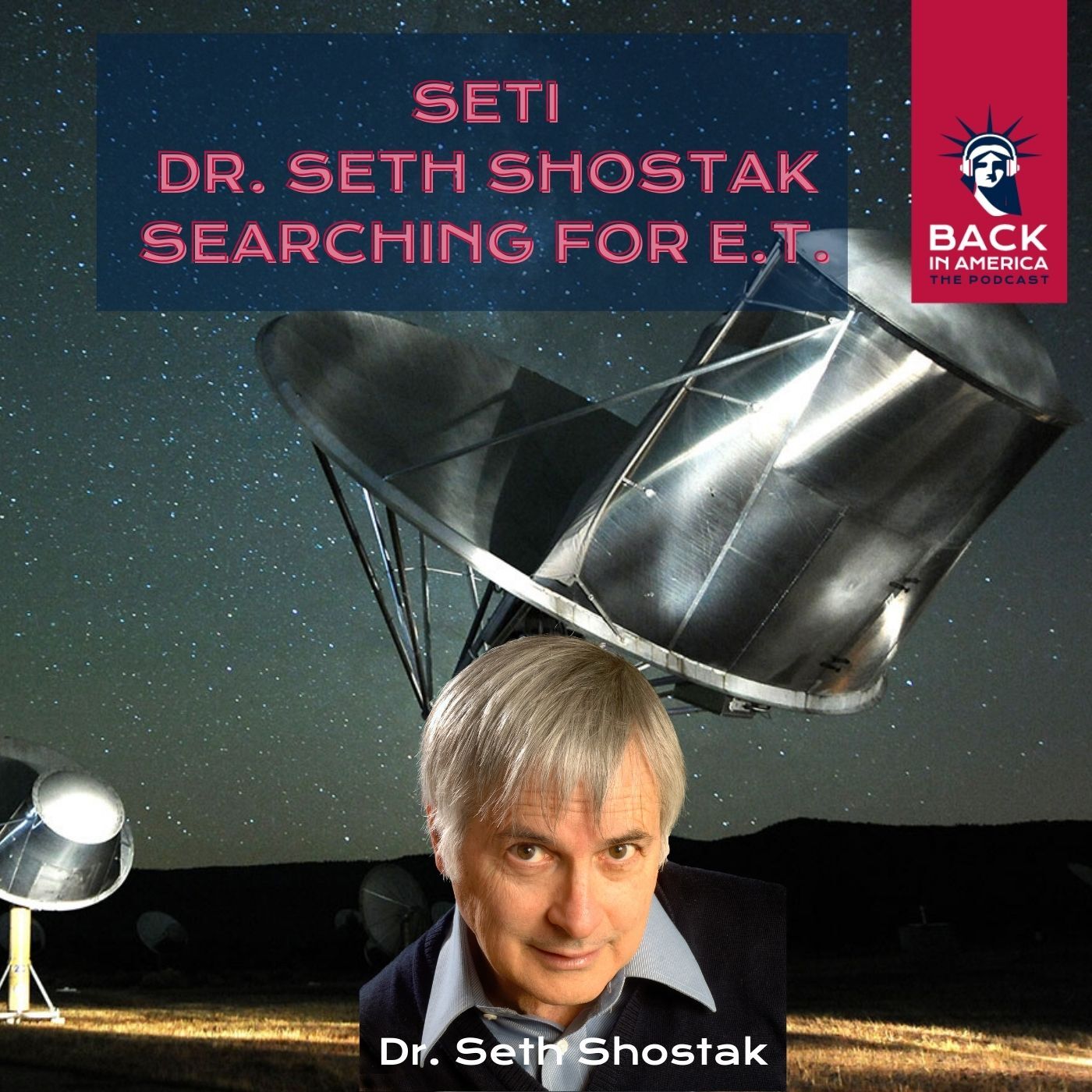
Back in America is a podcast exploring America’s culture, values, and identity. This conversation was recorded live on September 17. You can watch the unedited version on our Youtube channel.
Listen to this episode to learn more about the release of the Pentagon report on UFOs to Congress. The importance of cosmos exploration. The chances of finding extraterrestrial life in our lifetime.
After taking a long summer break during which my intern Josh Wagner took over Back in America with his excellent series Poetism I am happy to be back behind the mic.
My guest, Seth Shostak is a Doctor in Astronomy, and an Alien Hunter working with the SETI Institute, a research organization whose mission is to explore, understand, and explain the origin and nature of life in the universe. In fact, SETI stands for the "search for extraterrestrial intelligence". He has published more than 400 articles on science including regular contributions to NBC News MACH, gives many dozens of talks annually, and is the host of the SETI Institute’s weekly science radio show, “Big Picture Science.”
During our conversation, he said, “The equipment is getting faster and faster. We're looking at more and more of the universe. And on that basis that I've bet everyone a cup of Starbucks coffee, that we will find some evidence that we're not alone by 2035.
The SETI Institute https://www.seti.org/
Dr. Soth Shostak http://sethshostak.com/
The Big Picture Science Podcast https://radio.seti.org/
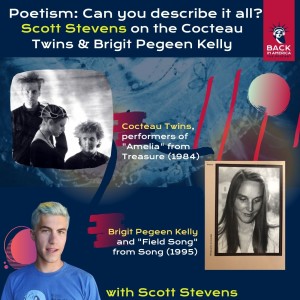
Friday Aug 13, 2021
Friday Aug 13, 2021
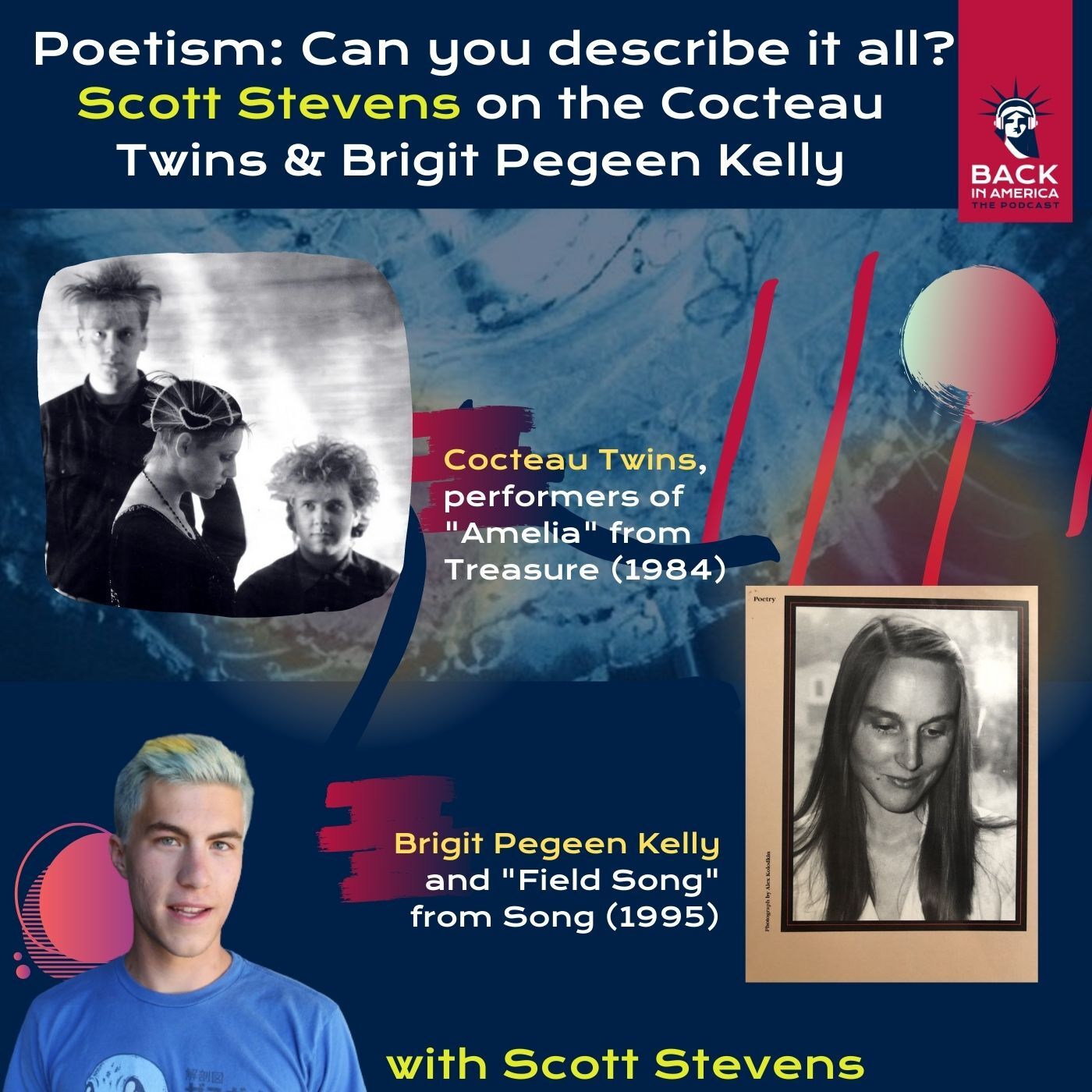
If the particular cannot be repeated, it remains forever lost; and this is why there can be no final closure to mourning. There can only be, alongside of mourning, learning to love new particulars ––Louise Fradenburg
In this week’s installment of “Poetism,” we’d like to ask about how words, poems, songs, and other kinds of art objects help bring life to a world. And by world, we mean a perspective, something experienced and understood in the innermost part of our being. Whether faced by inner solitude or loss, words attempt to communicate a state of affairs. But do they have to? Is there a way of placing listeners and readers directly into an experience without only describing it? Are there more direct ways of touching or “worlding” or elegizing? Or, in the words of this week’s poet, a moment: “Stands, the way a status / does in the mind.
Perhaps! And it is in this great abyss of a perhaps that this episode takes off. Our working theory is that the sonic qualities of words, and of language in general, can help transmit moods and sensations without the need for specific meanings. To ask such questions, Josh is joined by his college roommate Scott Stevens, a recent English graduate of Stanford University (and incoming Fulbright Scholar) who also speaks in Japanese and French. And, in the course of their dialogue, Scott they are assisted by the Cocteau Twins’ 1984 track “Amelia” off of Treasure as well as Brigit Pegeen Kelly’s “Field Song” from the collection Song (1995).
Over the course of their conversation, Scott and Josh touch upon the uniqueness of sound as a medium of communication, their difficulties of listening to the lyrics of a song, and poetry’s collective oral tradition.
***
For more Poetism, stay tuned for next week’s two-part series finale on Rachel McKibbins, blackface, and FKA twigs.
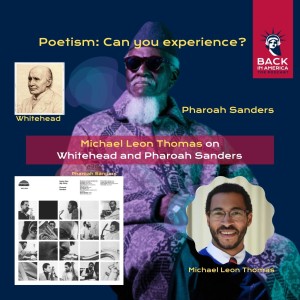
Friday Aug 06, 2021
Friday Aug 06, 2021
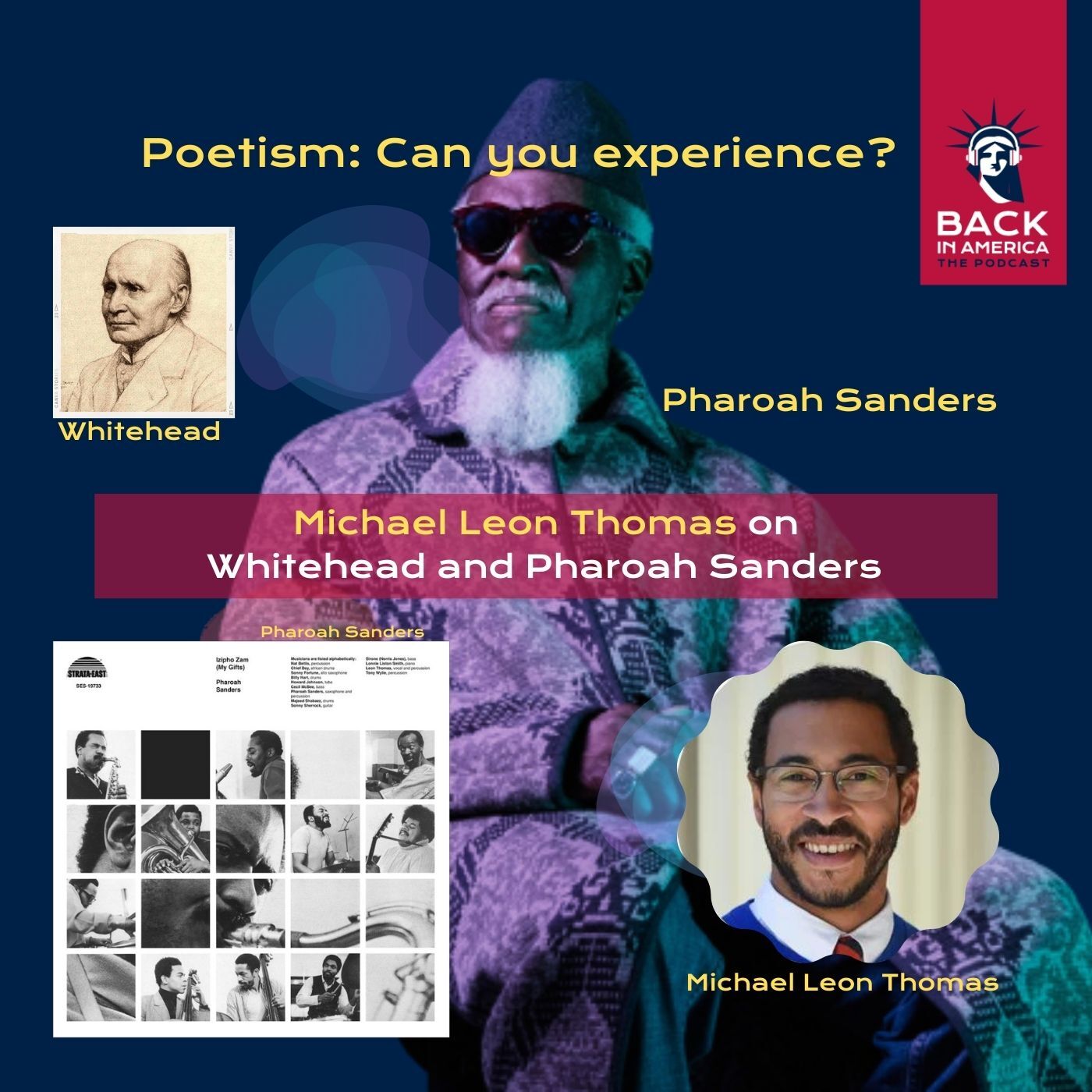
The sullen murmur of the bees shouldering their way through the long unmown grass, or circling with monotonous insistence round the dusty gilt horns of the straggling woodbine, seemed to make the stillness more oppressive. The dim roar of London was like the bourdon note of a distant organ.
These lines, from the opening pages of Oscar Wilde’s The Picture of Dorian Gray, emphasize unseen background noises as constituting an environment. The bees, working through the grass, create the biological condition of possibility for nature and the world, especially in their unseen state. And, so too, does the roar of London create the background chatter that allows the plot of the novel to take off. In this week’s installment of Poetism, we’d like to ask a similar question about our own age: what is the background noise that has made all this––society, labor, world–– possible?
Michael Leon Thomas, a professor of philosophy at Susquehanna University, joins Josh in the studio to tackle the vicissitudes and interisies of Alfred North Whitehead’s conception of philosophy alongside Pharoah Sanders’ 1973 album Izipho Zam, particularly the 28-minute titular track which closes the album. For Whitehead, a worldview is always in the process of emerging, and our language needs to follow suit. A reformed logician, Whitehead balks against a wholly systematic view of philosophy, suggesting that it is in the gaps, silences, and wetness of philosophy that something happens.
And to figure out what this something might be, we turn to Pharoah Sanders’ enigmatic, if expansive, composition which traverses through various languages, instruments, and cosmologies. The bandleader himself cannot be heard until the last third of the track, creating and leaving space (a society?) in which music creation can happen. In other words, it’s a slow reconditioning process.
Along the way, Michael and I talk about why he’s decided to spend his life with philosophy, how experience feeds into our listening habits, the postcolony of American, and why philosophy might have more in common with poetry than one might assume.
To read more about Michael’s work on music, check out an interview in Aesthetics with Birds.
Here is the 2016 Pharoah Sanders performance mentioned in the episode.
***
For Poetism, stay tuned for next week’s episode on Brigit Pegeen Kelly and the Cocteau Twins with Scott Stevens
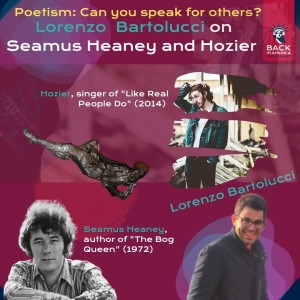
Friday Jul 30, 2021
Friday Jul 30, 2021
Across Northern Europe, so-called “bog people” have often been discovered shuffling around in the peat. While no one is quite certain where these quasi-mummified bodies come from––some date as recently as the 1940s––they have posed a strange mystery for countless poets and artists.
This week, Back in America’s Poetism team takes a look at one of Seamus Heaney’s bog-inspired poems “The Bog Queen” from his 1975 collection North. Written in the spring of the May 1968 movement and the beginning of the Irish “Troubles,” “The Bog Queen” ventriloquizes the voice of its eponymous queen, pretending to experience underground life before her eventual discovery.
In 2014, Irish musician Hozier released a setting of the poem, “Like Real People Do, ”removing many explicit references to Heaney himself, while keeping the ethos of the poem. For Hozier, the relationship of the fallen queen to her discoverer is one of love, even if from afar. Is it possible to love those who we will never meet? Can such a love be anything more than one-sided or wonderfully ironic?
To explore these questions, Stanford graduate student Lorenzo Bartolucci joins Josh in the studio to offer his take on love, Heaney, bog bodies, and American-ness itself.
***
If you’re enjoying this summer series, stay tuned for next week’s installment, featuring Susquehanna Philosophy Professor Michael Leon Thomas and the works of Alfred North Whitehead and Pharoah Sanders.
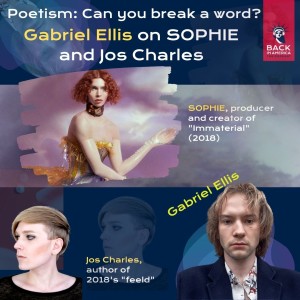
Friday Jul 23, 2021
Poetism 4: Can you break a word? Gabriel Ellis on SOPHIE and Jos Charles
Friday Jul 23, 2021
Friday Jul 23, 2021
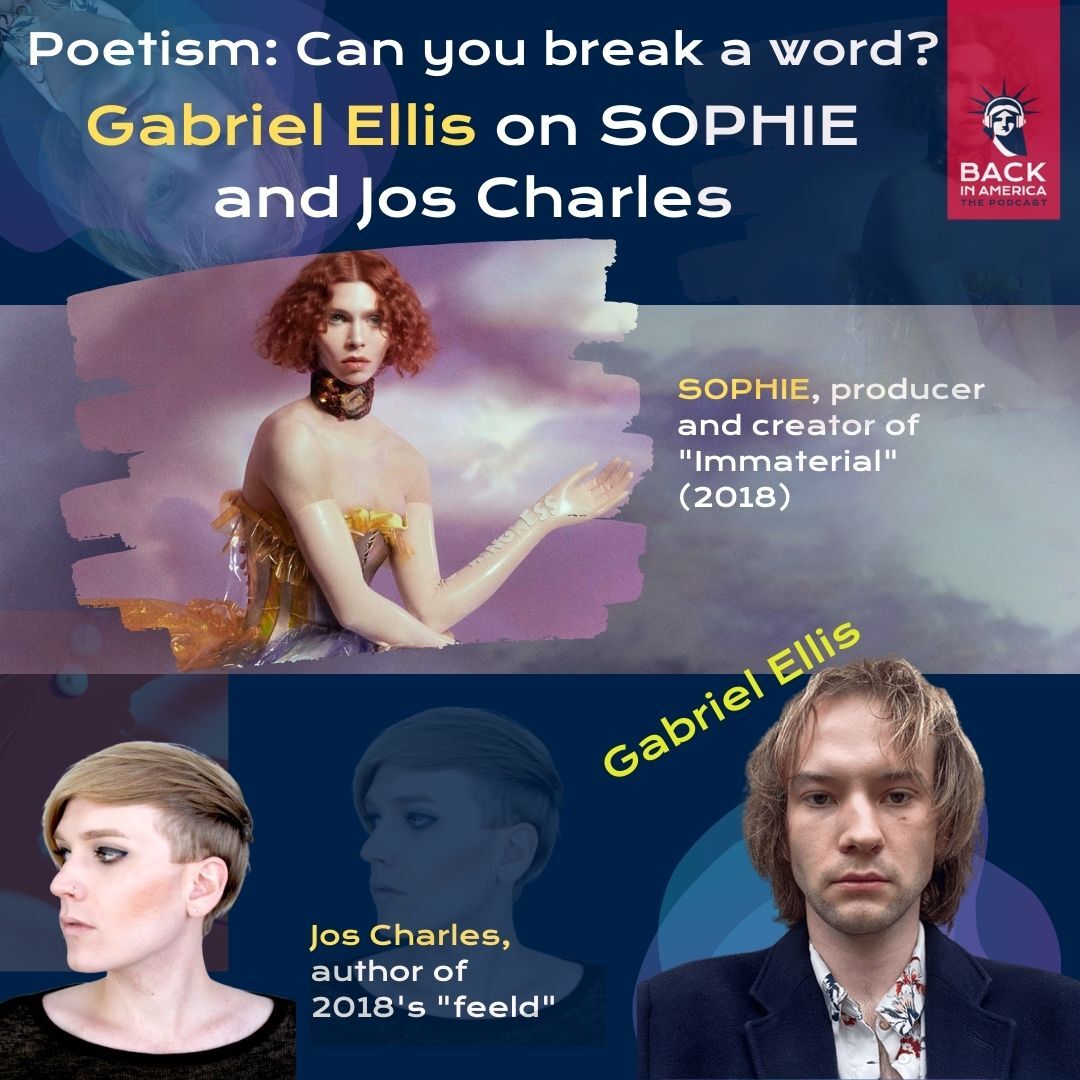
Elegy
Who would I show it to
In this short one-line poem, W.S. Merwin condenses the anguish of loss, of being alive, and of the limitations of languages into a neat little package. Why write in the absence of finality? And what happens when mortality catches up with us?
In this installment of Poetism, Podcast Editor Josh Wagner takes to the studio to ask about the honesty of writing––can writing ever reflect a true impression of reality? To field such questions about life, poetry, and everything in between, Stanford graduate student Gabriel Ellis takes the mic. Studying musicology, Gabriel focuses on contemporary pop music, and especially what he terms “anaesthetics,” music that describes, induces, or creates a sense of narcotic escape.
Our conversation loosely tracks Gabriel’s musical career before turning to Jos Charles’ 2018 poetry collection feeld, which he reads in a faux-Chaucerian accent: “i care so much abot the whord i cant reed.” Then, we talk about the late SOPHIE’s 2018 track “Immaterial” off of Oil of Every Pearl’s Un-Insides to explore a sonic tapestry of vibe.
Stay tuned at your dials for next week’s episode of Poetism, featuring dead Irish myths, Seamus Heany, Hozier, and more Stanford friends!
Note: Both Charles and SOPHIE identify as trans and use she/them pronouns, so we use both interchangeably.
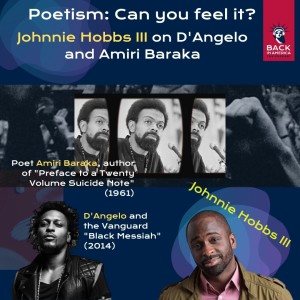
Thursday Jul 15, 2021
Poetism 3: Can You Feel It? Johnnie Hobbs on D’Angelo and Amiri Baraka
Thursday Jul 15, 2021
Thursday Jul 15, 2021
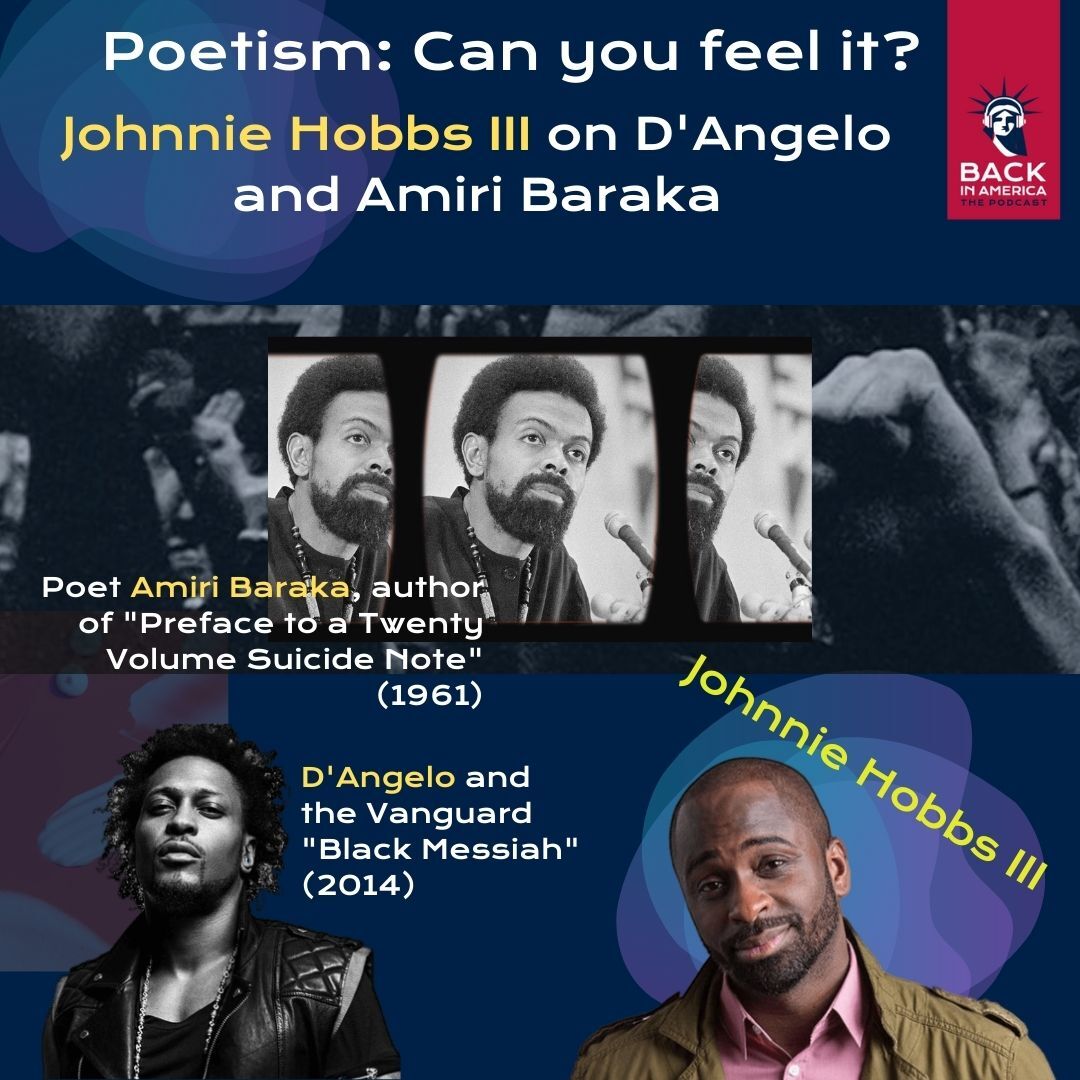
She listen to a little of that D’Angelo music, some love’s melody, sophisticated-type rap, which she say sounds more like real music, like intelligent music, than some of that other music, then she cuts the radio off ––Gayl Jones, The Healing
Like the narrator in Gayl Jones’ The Healing, this week’s installment of Poetism focuses on and around “black music,” that is music which conveys a specific feeling of a sensation or time without explaining anything. For me, it’s like being a child at an adult’s card table; no one tells you how the game works, you have to learn by being attentive and tuning into the tricks at hand. But the joy is in the puzzle, almost as much as in the rules of the game.
When his producer tried to market his serpentine music as “neo-soul,” D’Angelo rejected that moniker for the more expressive and expansive “black music.” There’s history and respect in his 2014 collaboration with the Vanguard, “Black Messiah,” but also affection, nostalgia, and rage. In scholar D’Angelo’s own words, “it’s all about capturing the spirit. It’s all about capturing the vibe. I’m kinda a first take dude.”
To tackle such questions of lineage and history, actor and tap dance instructor Johnnie Hobbs joins me in this week’s episode. Our conversation starts with Johnnie’s own background and love for films––especially the rare period piece that displays the mundane. As Sumana Roy and Xander Manshel have noted, it’s rare for art made by people of color about the everyday to be accepted by mainstream culture. The vast majority of literary awards given to writers of color are for historical novels which focus on their ethnic identities. To be taught within the university, Indian novels need to be about what it means to be a postcolonial subject;––it’s uncommon to see a novel about one’s dreams of becoming a famous poet, midnight walks, and family fights.
And Johnnie has developed his own test to see whether a historical film can do more than just showcase violence against Black bodies. In the final minutes of the podcast, we turn towards Amiri Baraka’s “Preface to a Twenty Volume Suicide Note” (1961) to unpack it’s own relationship to Black suffering and its future(s).
Stay tuned for next week’s episode on bubblegum pop and Old English verse in Jos Charles’ feeld (2018) and SOPHIE’s “Immaterial” (2018)––guided by anesthetic wizard Gabriel Ellis, who you might remember from his cameo in last week’s installment.
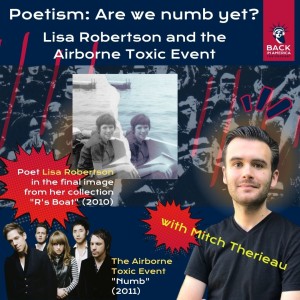
Thursday Jul 08, 2021
Thursday Jul 08, 2021
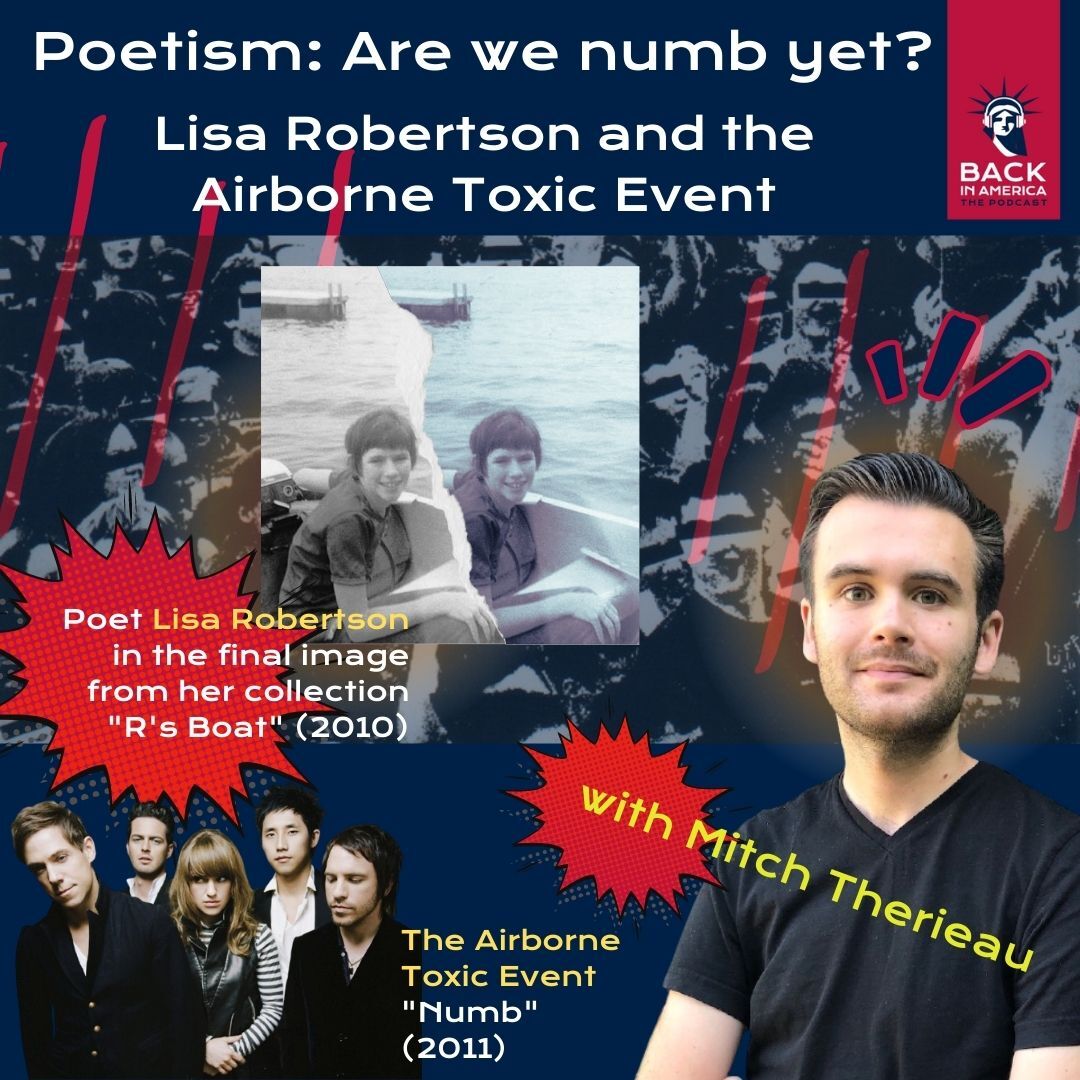
Why are we so blind, why do we see so little, when there is much around us to see?
So asks philosopher Alva Noë in Strange Tools, an exploration of how art objects contain, persuade, envelop, and direct our attention. What happens when we love a song, poem, or a moment in a day? How do these works of art direct and misdirect our attention? What––physically, emotionally, actually––happens to us in these moments of transport? And how can we talk about any of this without poorly paraphrasing that direct experience?
These are the questions Podcast Editor Josh Wagner was left with at the end of our last episode of Poetism. So, in this week’s installment, Josh invited Mitch Therieau, a Stanford researcher working on contemporary literature, to unravel the interstices of Lisa Robertson’s R’s Boat (2010) and the Airborne Toxic Event’s 2011 hit “Numb” off of All at Once.
Robertson’s poetry captures fleeting moments of stillness and the everyday, placing them in complex and abstract forms, while Numb’s soundscape desensitizes listeners to the world around them. Over the course of their conversation, Mitch and Josh plumb the surface-level depths of Robertson’s avant-garde poetry and trace the music history at the core of the Airborne Toxic Event’s track.
Longtime listeners might be interested to compare Mitch’s idea of what America is with Josh’s––way back from his first episode with Back in America.
Stay tuned for next week’s episode with Los Angeles-based filmmaker and tap dancer Johnnie Hobbs, featuring Amiri Baraka and D’Angelo and The Vanguard.
Check out frontman for the Airborne Toxic Event Mikel Jollett’s 2020 memoir Hollywood Park.
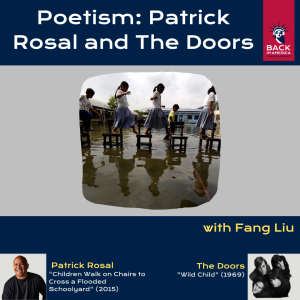
Thursday Jul 01, 2021
Poetism Part 1: Patrick Rosal and The Doors with Fang Liu
Thursday Jul 01, 2021
Thursday Jul 01, 2021
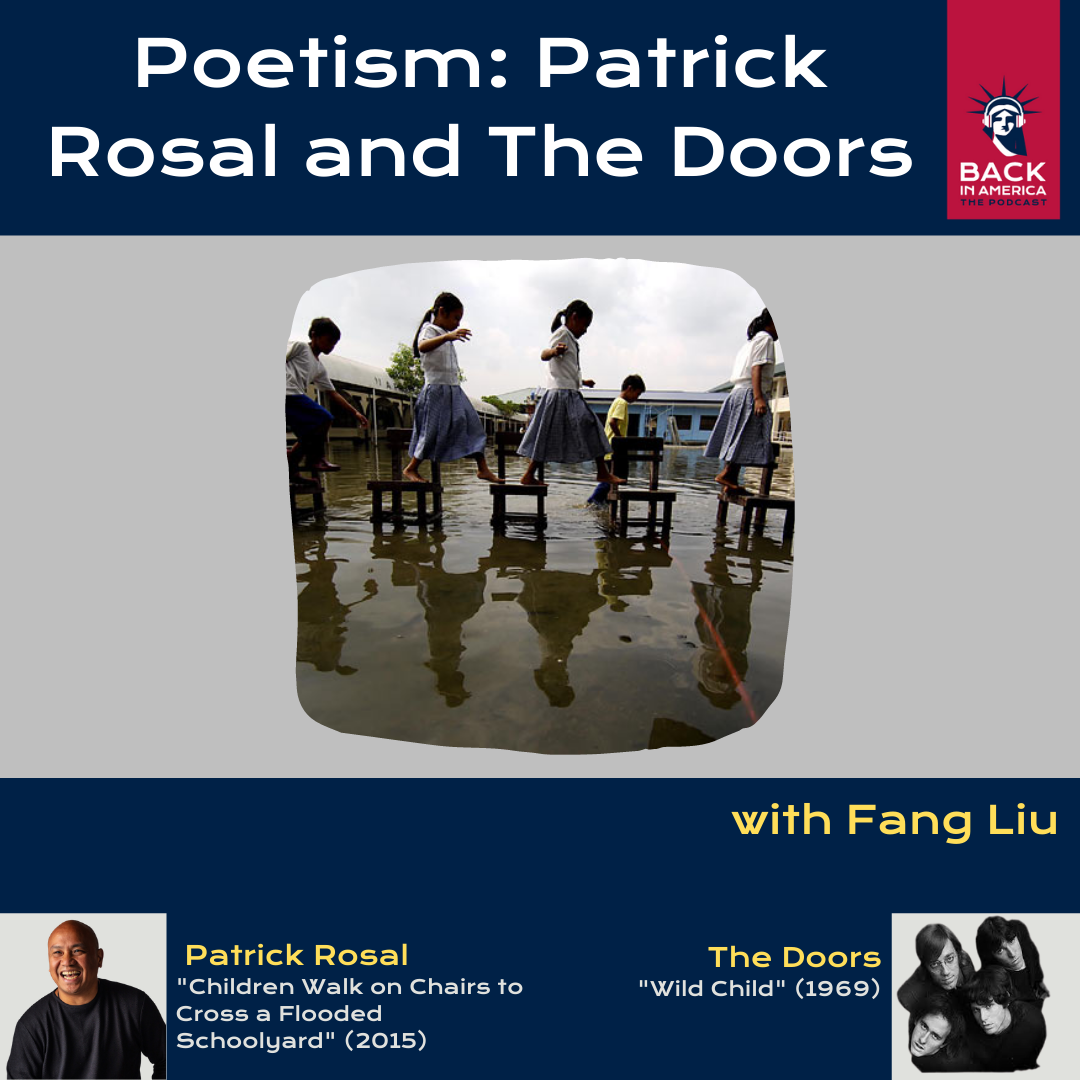
Happy July! While Stan and the usual Back in America podcast are on a hiatus this summer, Podcast Editor Josh Wagner will be hosting a new series entitled Poetism, tracing the foundations of and influences behind American poetry and music.
Each week, Josh will invite a guest on the air to talk about an unusual pairing of a poem and song––seeing how they overlap and converse with one another. In the process, we hope to expose listeners to new poets and songs and make a case for the enduring relevance of poetry in an age of digital and visual media.
In our inaugural episode, Josh is joined by Fang Liu, a linguistics major from Stanford, to talk about memory and imagination in Patrick Rosal’s 2015 ekphrastic poem “Children Walk on Chairs to Cross a Flooded Schoolyard” and The Doors’ “Wild Child” off of the 1969 record The Soft Parade.
Stay tuned for next week’s episode on sensations of loneliness through the Airborne Toxic Event’s early 2000s bop “Numb” and poet Lisa Robertson’s R’s Boat (2010).

Friday Jun 25, 2021
Doug Steinel: Cancel Culture in Classroom
Friday Jun 25, 2021
Friday Jun 25, 2021

Before we dive into today’s episode, a personal note: This summer, I will be going back to France for the first time in two years, and I will take a break from podcasting until September.
However, my interns Josh and Emma will be keeping the lights on by releasing podcast episodes and newsletter articles (subscribe here).
Josh has been working on a series of episodes discussing American music and poetry, which will be released weekly in July and August.
So, Back in America will be in summer mode, and I know you will love it!
Now, it is time for our interview.
Starting this podcast back in November 2019, I wanted to make sense of the Trump years, and the sadness I felt for a country I loved but no longer understood.
In more than 50 episodes and countless conversations, I have time and time again asked my guests: What is America to them?. Careful listeners to this podcast might have gained a better understanding of the fabric of this country––I know I certainly have.
In this episode, I turn to Professor Douglas Steinel, a man whose life has been dedicated to just that: understanding America.
His students have praised him for forcing them to confront opposing views, and his course syllabi require reading political critiques from both sides of the aisle.
Professor Douglas Steinel has been a professor of American Political Thought since 1982 at the George Washington University, just a few blocks away from the White House.
Professor Steinel's book suggestions
Bertrand Russell Collection, Selected Works, 1912-1922: The Problems of Philosophy, The Analysis of Mind, Why Men Fight, Free Thought and Official Propaganda
Why I Am Not a Christian and Other Essays on Religion and Related Subjects
by Bertrand Russell
The New Class War: Saving Democracy from the Managerial Elite
by Michael Lind
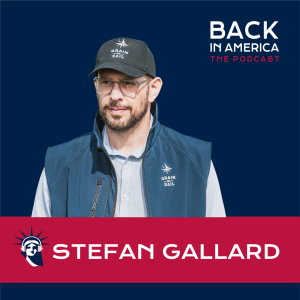
Thursday Jun 03, 2021
Cargo-Sailboats are Back-at-Sea, Creating a Greener Supply Chain
Thursday Jun 03, 2021
Thursday Jun 03, 2021
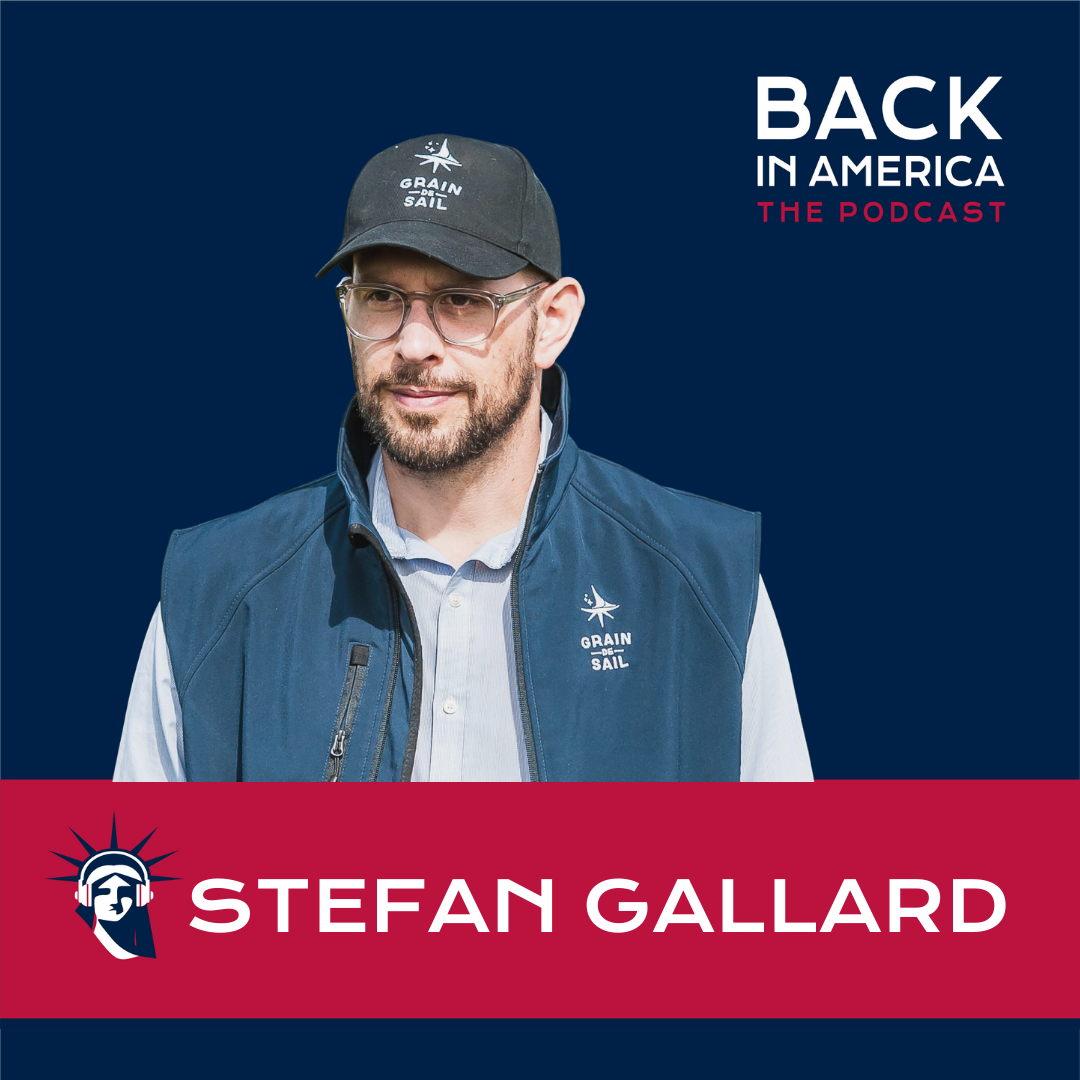
This episode was recorded live on May 26 and includes questions from the audience.
It is part of a series on sustainable initiatives to save our planet. In his latest interviews, host Stan Berteloot spoke with Navi Radjou about the frugal economy and Bruno Sarda about how corporations are experimenting with sustainability.
Stan’s guest, Stefan Gallard, is a French-American working for Grain de Sail, a company that has built the first modern wind-powered cargo ships.
Grain de Sail transports wine, coffee beans, and chocolate across the globe in its 80- foot schooner. Its sailboat cargo is an essential part of the company’s green logistics chain.
More information on Grain de Sel at: Graindesailwines.com

Thursday May 27, 2021
Thursday May 27, 2021

Subscribe to Back in America, the newsletter
Back in America is a podcast exploring America's culture, values, and identity. This episode is part of a series on positive initiatives to save our planet. In his last interview, Stan Berteloot spoke with Navi Radjou about the frugal economy. Today, he is talking to Bruno Sarda, an internationally renowned expert in sustainability.
For years, corporations have advertised their green initiatives to reassure both investors and customers about their sustainable practices. Yet as we know, climate change is only getting worse, so we wanted to ask Bruno if this was just “greenwashing.”
On a personal note: Back in America now boasts more than 50 episodes, and we am very grateful to you, our listeners, for your support during all this time. This summer, Stan will be going back to France for the first time in two years, and he will take a podcast break until September.
However, Back in America’s interns Josh and Emma will be keeping the lights on by releasing podcast episodes and newsletter articles (subscribe here).
Josh has been working on a series of episodes discussing American music and poetry, which will be released every week in July and August.
So Back in America will be in summer mode, and we know you will love it!
To learn more about Bruno Sarda check out his Linkedin profile.
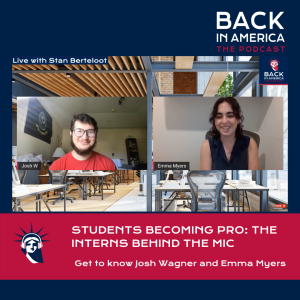
Thursday May 06, 2021
Students Becoming Pro: the Interns Behind the Mic
Thursday May 06, 2021
Thursday May 06, 2021
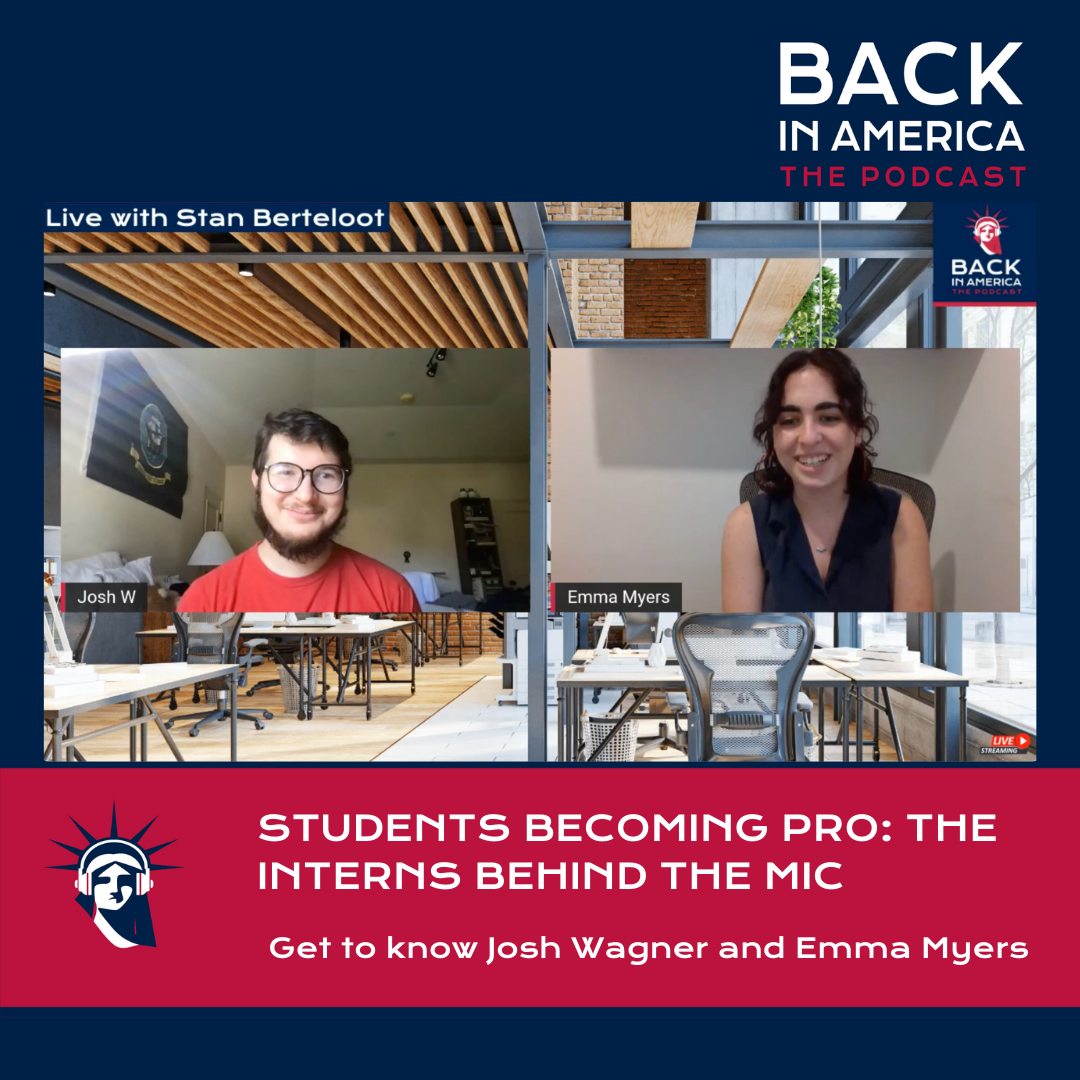
Careful listeners of Back in America may have noticed that we have expanded our team and welcomed two interns to research, record and write the podcast alongside me, Stan Berteloot.
In the spirit of transparency, I’d like for you to formally meet my interns Josh Wagner and Emma Myers in true podcast fashion as they interview each other!
They also discuss their own exciting projects coming soon: be on the lookout for Josh’s Poetry and Eugenics series both releasing this summer, and Emma’s deep dive into the history of vaccine hesitancy and medical ethics later this month.
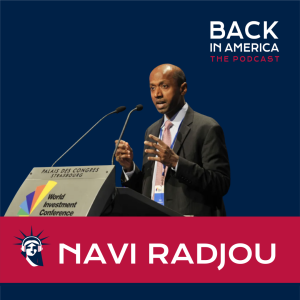
Thursday Apr 29, 2021
Thursday Apr 29, 2021
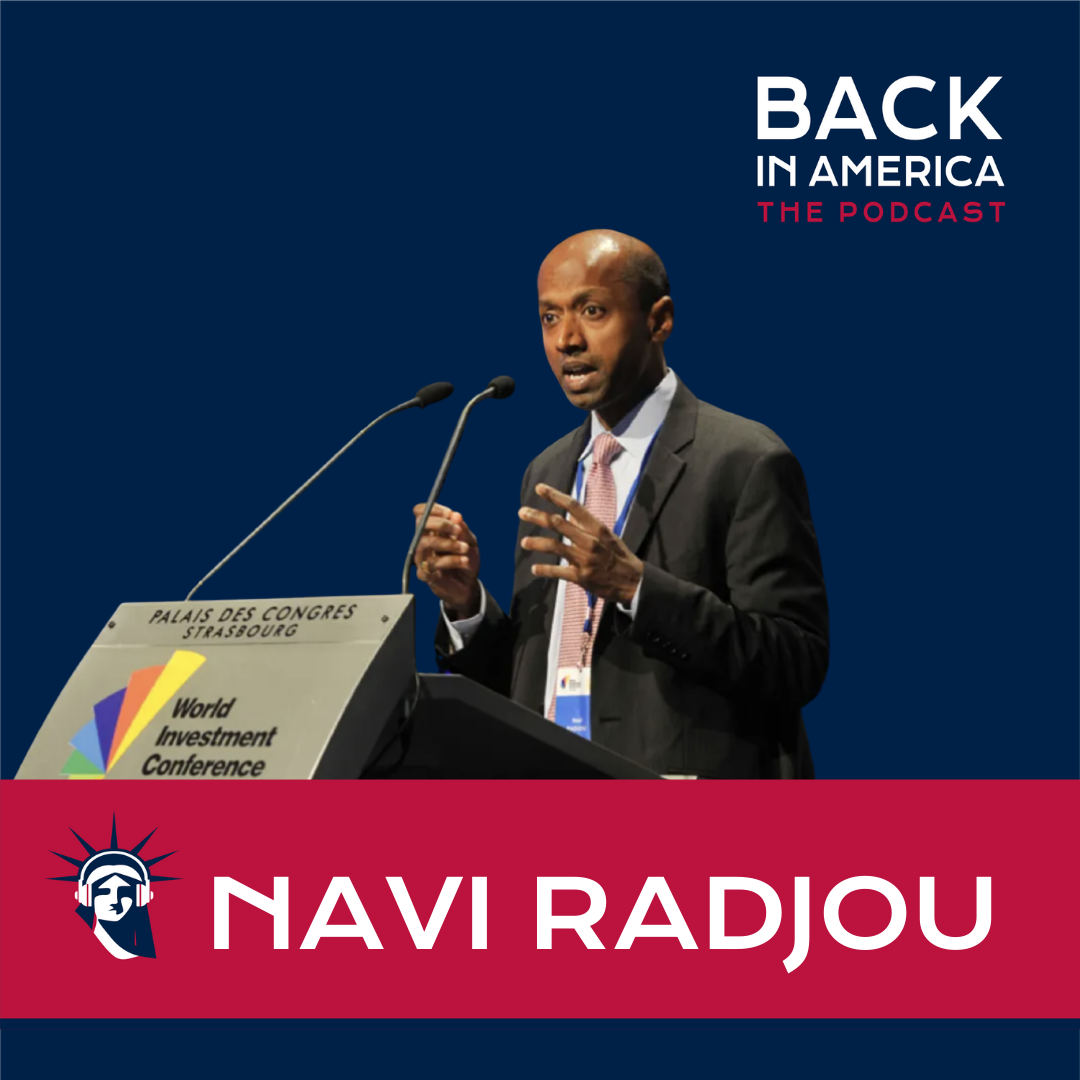
In this episode, Back in America’s host, Stan Berteloot speaks with Navi Radjou, internationally renowned Indian-French-American scholar, innovation and leadership advisor, and bestselling author based in New York. Navi’s most recent book, Frugal Innovation: How To Do More With Less, shows how companies can innovate faster, better, and more sustainably.
The conversation focuses on Navi’s work on developing an alternative to capitalism and concrete actions individuals and businesses are taking to build a better, more sustainable world.
“My job is to introduce Americans to new ways of doing business, new ways of creating economic and social value in a sustainable way,” says Radjou.
He describes the “frugal economy” as a new economy that is built on business-to-business (b2b) sharing, local production from micro-factories, the notion of regeneration, or how companies can consciously have a positive impact on society and the planet.
Since Navi is multicultural, the episode focuses on the values, culture, and identity of America. Navi comments on an excerpt from a previous Back in America interview with American writer and thinker John Michael Greer.
In the audio clip, we hear Greer say that America is all about independence and every man for himself, while European countries have a more communal attitude.
In response, Navi asked: “Why do we have to choose? Why can we have both? Why can we go into a kind of the third dimension where we try to integrate the goodness of America, the goodness of Europe? The ideal society,” he says, “is the one that tried to find the sweet spot between maximizing individual expression while contributing to social integration.”
Navi backs up his theories with concrete examples of companies, such as Xometry, People + Work Connect from Accenture, Unilever, Civica RX, or Convoy that are currently working according to the frugal economy precept.
Here are two of Radjou’s articles on Frugal Economy and B2B Sharing :
The sharing economy’s next target: Business-to-business
Navi Radjou’s Movie and Books Selection
The Evolving Self: A Psychology for the Third Millennium Paperback
by Mihaly Csikszentmihalyi
by Sri Aurobindo
Movie
Losers on Netflix

Thursday Apr 15, 2021
Thursday Apr 15, 2021
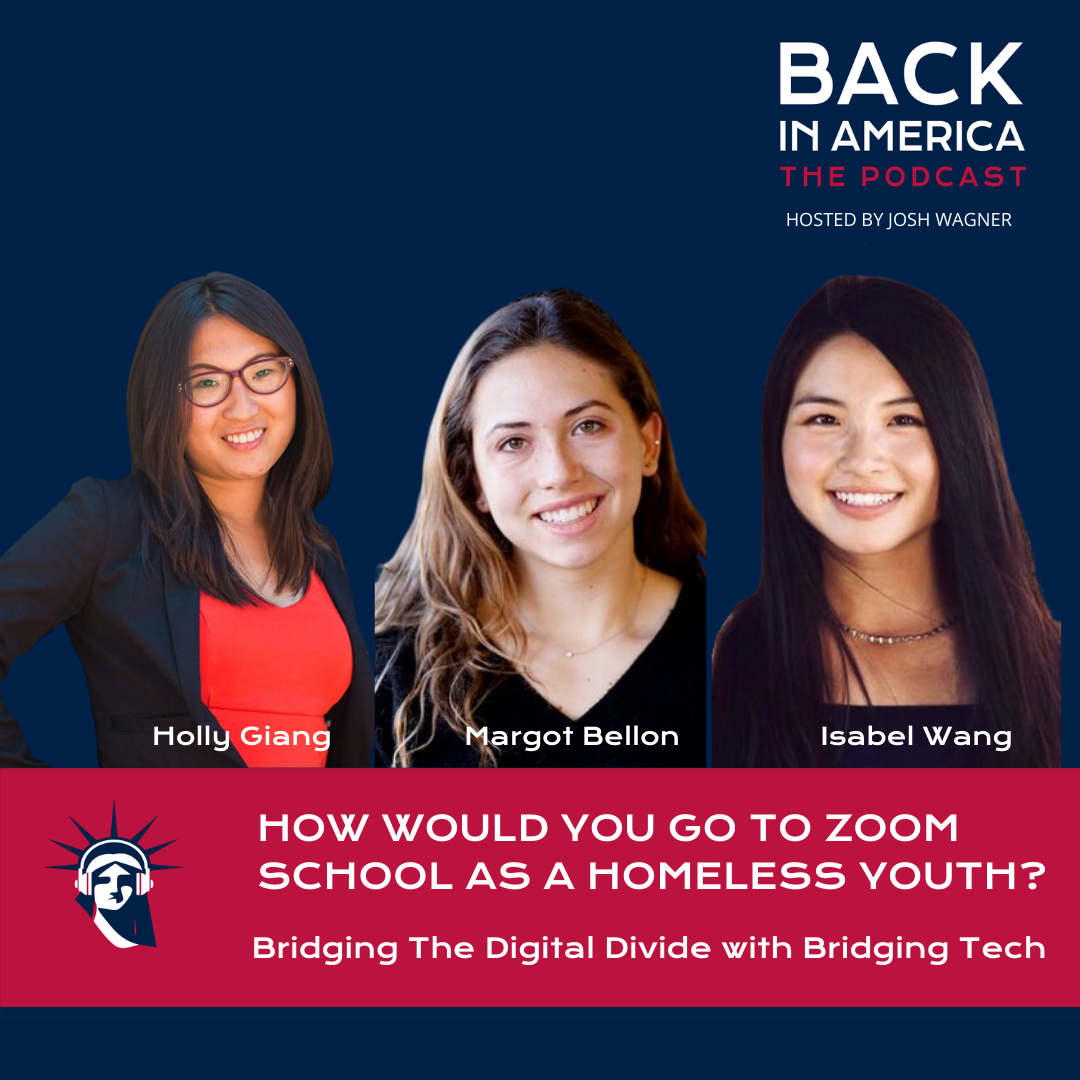
Bridging COVID-19 Isolation and the Digital Divide with Bridging Tech
In 2021, it is nearly impossible to get anything done without a laptop: apply for a job, go to school, safely connect with friends, or schedule a COVID-19 vaccine appointment. Yet, there are fewer laptops in existence than humans on this planet, presenting a unique challenge for unhoused students. Not only are they disadvantaged in terms of their living situation, but also have to deal with this extra technological hurdle known as the digital divide.
Naturalized Americans have a unique set of familial and institutional knowledge about how to navigate the complex and confusing American system: What is an SAT? Who can I ask for help on my math homework? Where can I get free public Wi-Fi? While these questions might seem obvious to a second-generation resident, they are anything but for immigrant and first-generation communities. This week’s episode of Back in America, hosted by Podcast Editor Josh Wagner, highlights Bridging Tech, a charity devoted to providing hardware and other educational resources for unhoused students. Having donated nearly 1,000 laptops nationwide, Bridging Tech is developing infrastructure for companies and individuals to donate disused computers to be wiped/refurbished before being donated to unhoused communities. Founded by rising Stanford seniors, Isabel Wang and Margot Bellon, Bridging Tech is committed to listening to the unhoused community and creating actually helpful resources, rather than assuming what would be best and offering potentially unhelpful solutions. Holly Giang, Bridging Tech’s Foundation Relations Manager, also joins us for the interview.
To find out how unhoused youths can go to online school, what policy measures are holding back their success, and how to get involved with Bridging Tech, listen to our episode!
–––
In the coming weeks, the Back in America team will be launching an eight-part series investigating the relationship between music and poetry, tentatively titled “Rhythmic Verses.” Join Podcast Editor Josh Wagner as he poetically travels around the country, asking the age-old question: What is American to you?
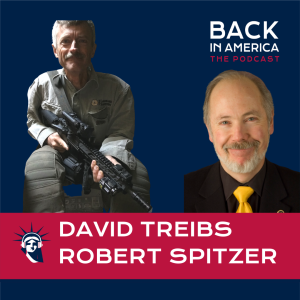
Thursday Apr 08, 2021
Thursday Apr 08, 2021
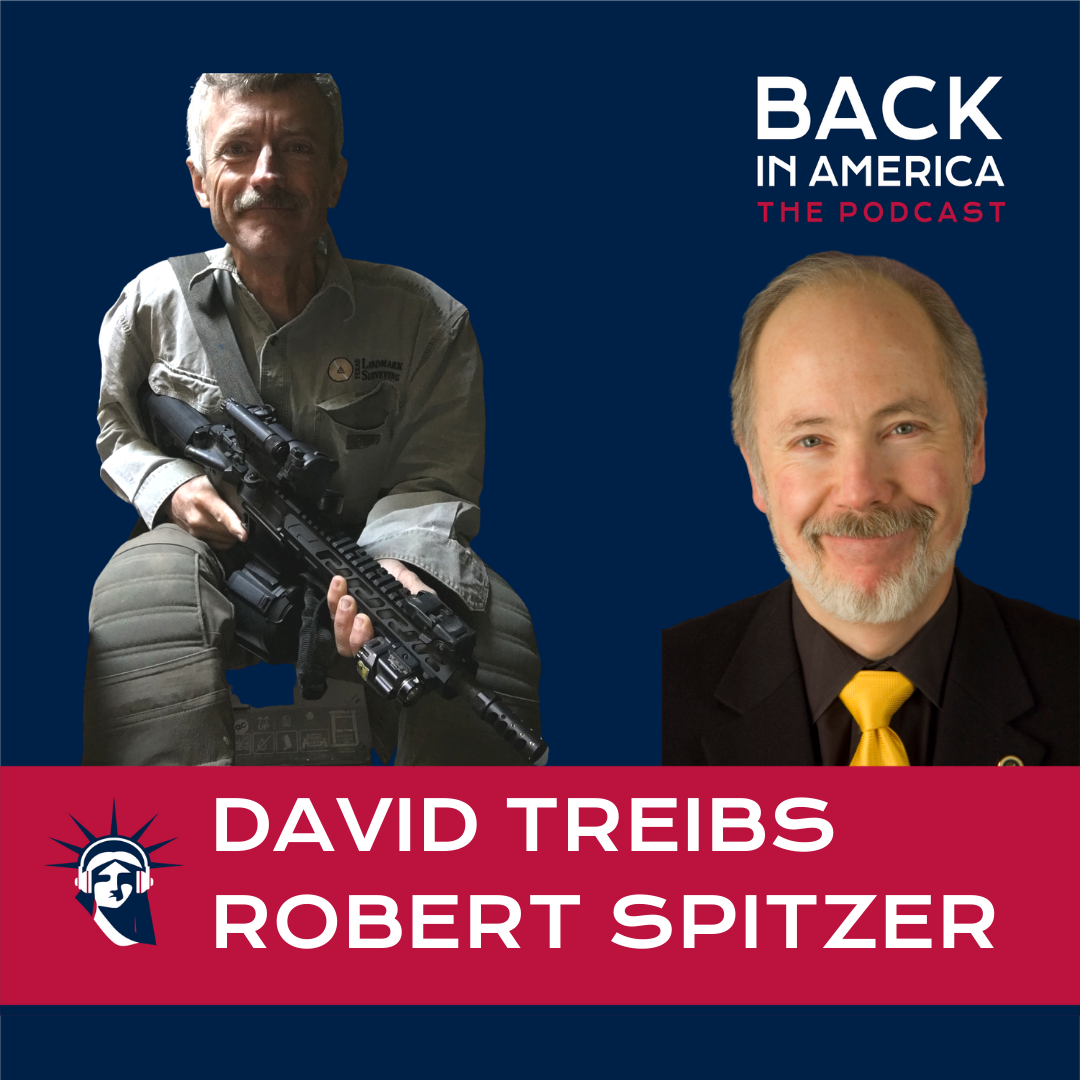
As Biden announces new executive actions on gun control, the Back in America team invites you to re-listen to an episode on guns in America, initially published on Oct. 23, 2020.
In his executive actions today, Biden restricted the sale of “ghost guns,” untraceable guns which are sold in kits.
Today’s announcements are less expansive than the president’s initial campaign promises. Yet, administration officials suggest that these measures are only the first steps of Biden’s plans for addressing gun violence. Further legislation will require Congressional approval and include a nationwide assault weapons ban (something that Australia successfully adopted 25 years ago) and universal background checks.
The following episode is an edited version of live interviews that were recorded on October 20th and 21st. 2020. You can watch the entire broadcast on Back in America’s YouTube channel.
A few weeks ago Jon, a good college friend, visited us for the weekend. At night, we were joined by a couple living next door and we started to talk about politics as we drank beers by the fire pit in the backyard.
In the backyard were two French nationals (my wife and I) joined by three Americans.
I can't remember exactly how or why Jon started to talk about gun rights, but the conversation became serious when he professed not only his belief in the right to bear arms but also that it was essential to the protection of civilians against the tyranny of the government. Historically, the people most affected by governmental tyranny (forced displacement, slavery) have been denied access to firearms and the ability to use them.
This made me dig further into the American gun debate. I've learned that many citizens support the idea of owning any type of gun and that some believe that it is a God-given right.
What has God got to do with guns? How can a democracy work when its citizens trust their guns more than their votes? And with the recent bankruptcy of the NRA, will gun control actually work?
To try to make sense of all this we are going to hear from three people: first, my friend Jon Phebus will clarify his views; then David Treibs, a Christian and gun activist, will talk about his God-given right to bear arms. Finally, SUNY Cortland’s Professor Robert Spitzer, an expert on constitutional law and gun control, will offer his interpretation of the constitution and bring some historical context to the debate.
Books and Movies Recommendations:
David Treibs
Love Letter to America by Tomas Schuman
The Persecutor by Sergei Kourdakov
Marx & Satan by Richard Wurmbrand
Professor Robert Spitzer
The Politics of Gun Control by Robert J. Spitzer
Casablanca (1942)
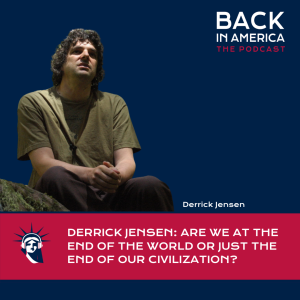
Saturday Mar 27, 2021
Derrick Jensen: Are We at the End of the World or just the End of our Civilization?
Saturday Mar 27, 2021
Saturday Mar 27, 2021
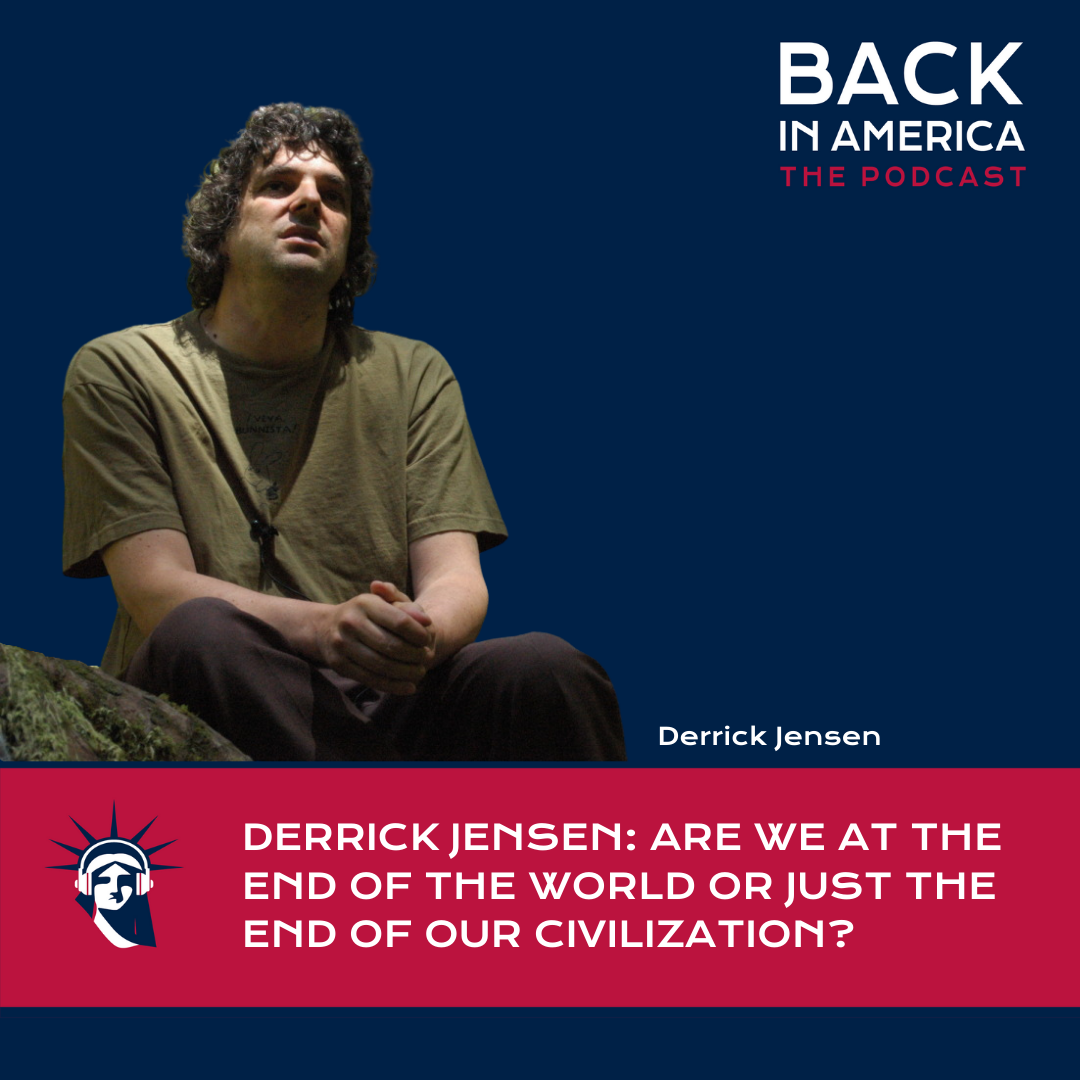
In this episode, Stan Berteloot continues to explore how leading American collapsologists thinkers conceive of the collapse of our Western civilization.
Since the 1990s, scholars have been predicting that the end of the Cold War and the struggle between capitalism/communism will also bring about “the end of history.” But, are these worries founded? What are we to make of the last 30 years?
After previous episodes with John-Michael Greer and Richard Heinberg, Stan sat down with Derrick Jensen, an American author, ecophilosopher, radical environmentalist, and anti-civilization advocate. He once said that “We’re going to watch the end of the world on television until the TVs go out.”
For Jenson, the solution is essentially to return to the Stone Age. You say that’s ridiculous?!
Well, his movement, the Deep Green Resistance (DGR), is gaining international traction in the West. In any case, many people agree that, whether we want it, our civilization is on the brink of extinction.
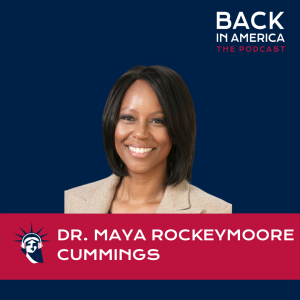
Monday Mar 08, 2021
Monday Mar 08, 2021
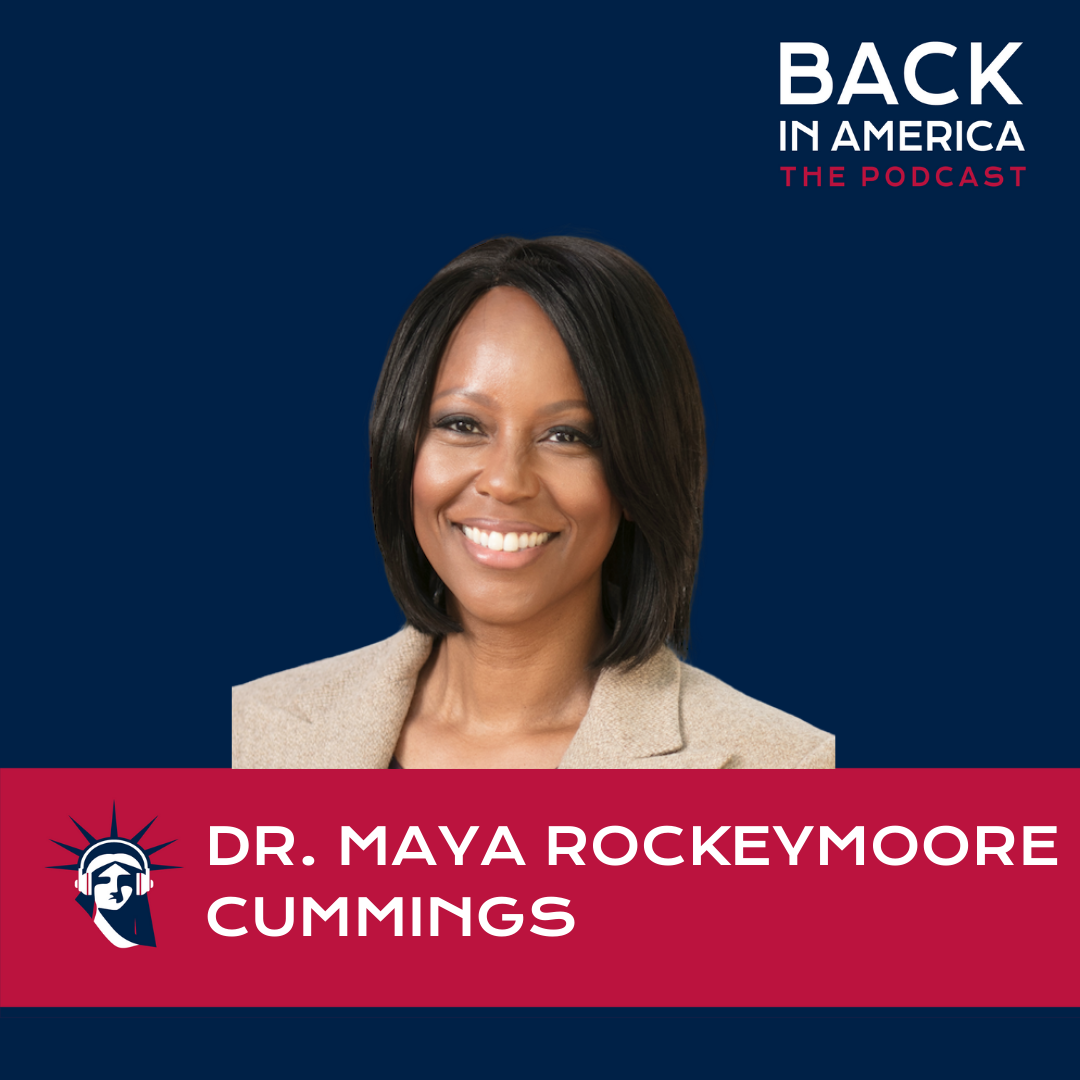
Today is March 8, International Women's Day, and on this day I suggest that we listen to Dr. Maya Rockeymoore Cummings and her work for civil justice.
This episode was previously released on Jan. 22, 2021. In this episode of Back in America, I speak with Dr. Maya Rockeymoore Cummings, former chair of the Maryland Democratic Party, political consultant, and activist. She recently ran to represent Maryland’s 7th District in Congress after undergoing a double mastectomy.
Dr. Maya Rockeymoore Cummings is the widow of Congressman Elijah Cummings, a good friend of former Congressman John Lewis. When Lewis died in 2020, hundreds of Twitter account accidentally posted memorial photos of Cummings since the two looked so much alike!
On Back in America, Dr. Maya Rockeymoore. Cummings discusses the ongoing fight for civil rights. “I fight for the right to exist. I fight for the right of everyone to be recognized on the level of our common humanity. I fight for the history in this country that has been suppressed. I am the fourth generation from slavery in this country. My parents grew up in the Jim Crow South. My late husband, Elijah Cummings grew up in the Jim Crow South. They were born into a world that denied African Americans the right to exist,” she said.
We also spoke of Black feminism and the importance for Black women to take charge of their struggle against racist and institutionalized patriarchy.
In recent months, Dr. Maya Rockeymoore Cummings has been working to publish We're Better Than This: My Fight for the Future of Our Democracy, her husband’s final, unfinished book. The book came out last September and she talks to me about the importance of getting her husband’s voice out there.
We're Better Than This - My Fight for the Future of Our Democracy
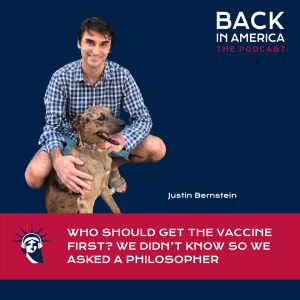
Thursday Mar 04, 2021
Who should get the vaccine first? We didn’t know so we asked a philosopher
Thursday Mar 04, 2021
Thursday Mar 04, 2021
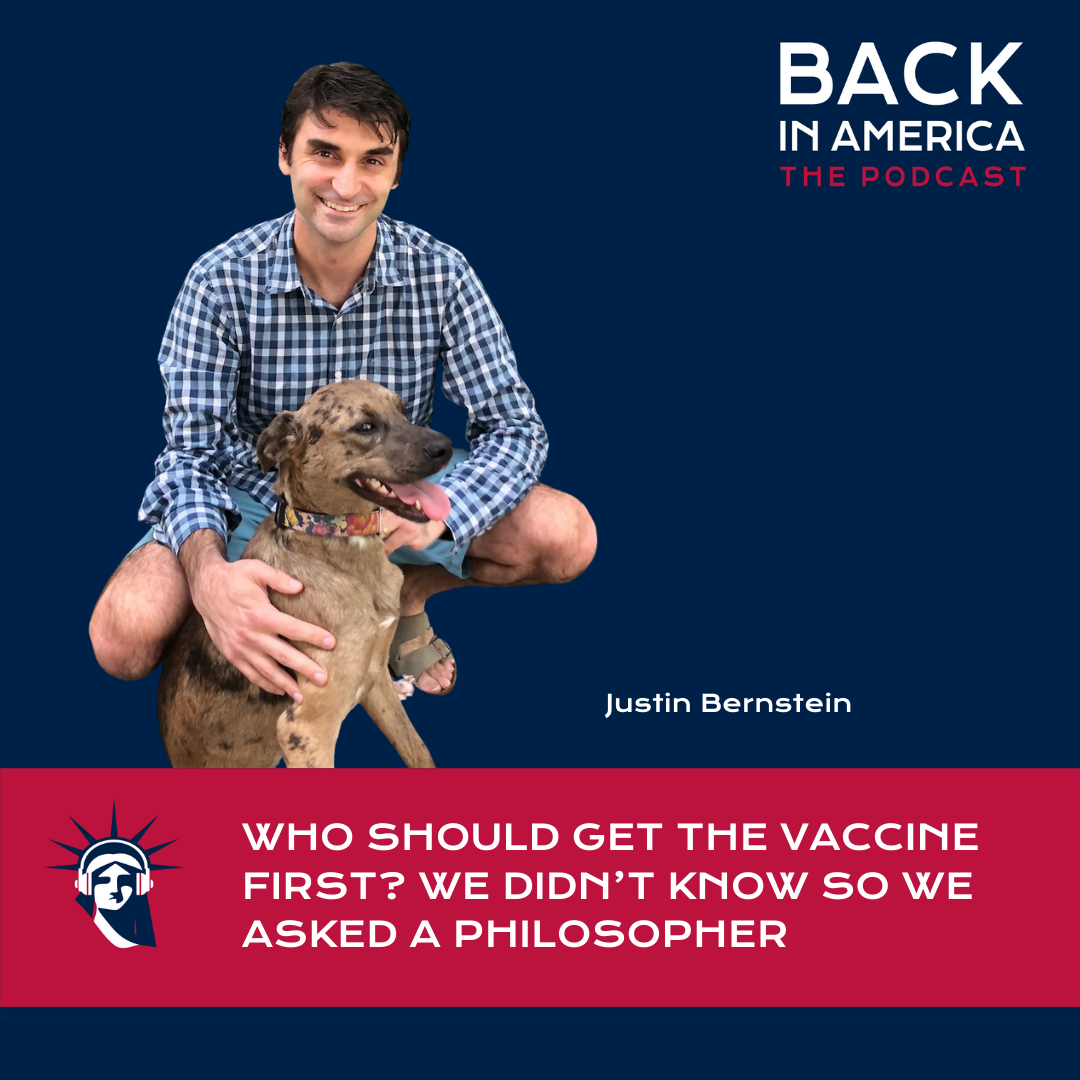
As countries worldwide scramble to vaccinate their citizens against the deadly COVID-19 pandemic, governments have to make the uncomfortable calculus of who deserves to get the vaccine right now. The ones who are spreading it the most? The ones in essential high-risk jobs? People over a certain age? That threshold is unclear and hotly contested. With several months to go before vaccines are readily available to any desiring American adult, legislators have to ask The Question: who first? And, as more vaccine becomes available, they will also have to ask whether it is morally justified for the U.S. government to mandate every citizen or every healthcare worker to take the vaccine? If many states mandate every child to be vaccinated against measles, mumps, and rubella, is COVID-19 significantly different?
In August 2020, Justin Bernstein, a philosopher at Florida Atlantic University, co-authored a paper answering precisely this question. And while the state of the world has changed significantly since then, the core question of how governments value their citizens, when, and why remains constant (if you’re curious, the U.S. government places the monetary value of a human life at roughly $10 million).
Podcast Editor Josh Wagner sat down with Justin to ask precisely these burning questions. For Justin, vaccines are just like any other vital resource that the government needs to allocate. And, in his mind, while our government has been failing in its mandate to protect public health, it is still the best means we have.
Listen in to find out the answers to these questions and more!
Justin’s website
Alexander Guerrero’s blog post about dividing up the United States
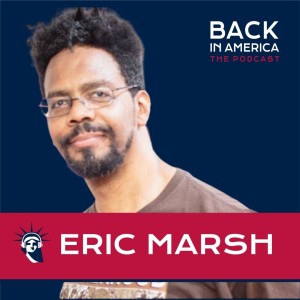
Saturday Feb 27, 2021
Listen again: Eric Marsh - Being a Black man today in America
Saturday Feb 27, 2021
Saturday Feb 27, 2021
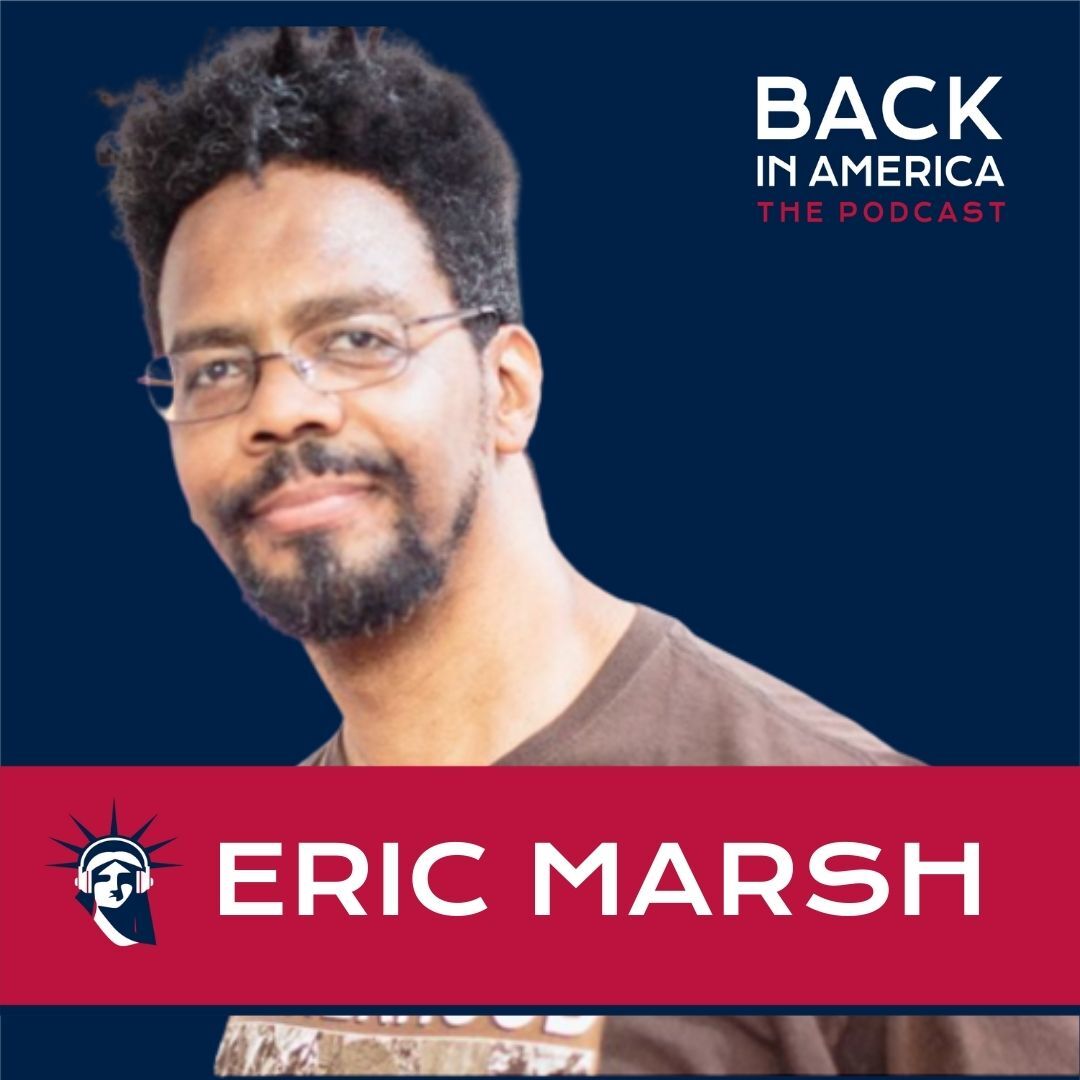
First published on November 18, 2019
When a French journalist returns to live in the US 25 years after leaving it as a student, he struggles to recognize the country he loves. He embarks on conversations with Americans of all backgrounds in a quest to understand what America means today.
This was the first installment of Back in America.
The episode is part of a series on masculinity in America.
Here I speak to Eric Marsh a Black activist and a social worker in Philadelphia.
We speak about being a Black man in America; the impact of slavery. The impact of the Trump election; consumerism.
We discuss an art piece by Hank Willis Thomas, Branded Head, a photo of a Black man’s head with the shape of the Nike swoosh, and what Thomas called commodifiable blackness.

